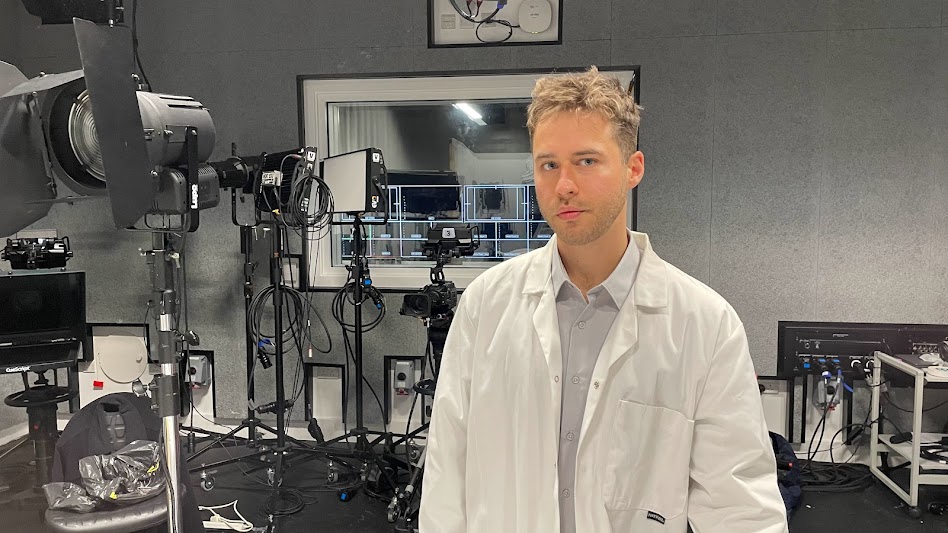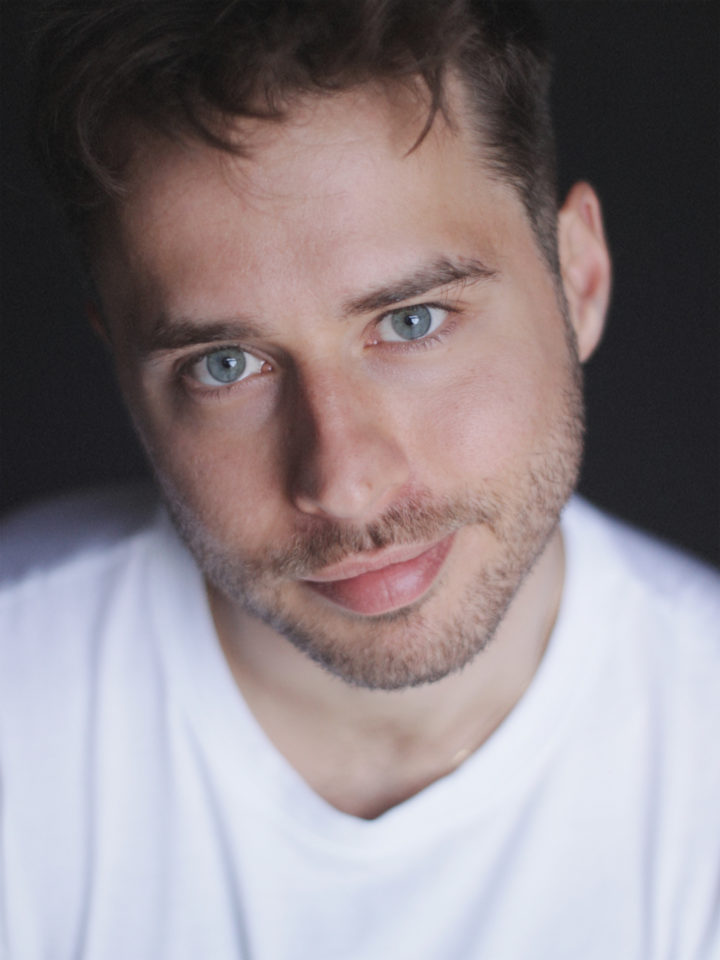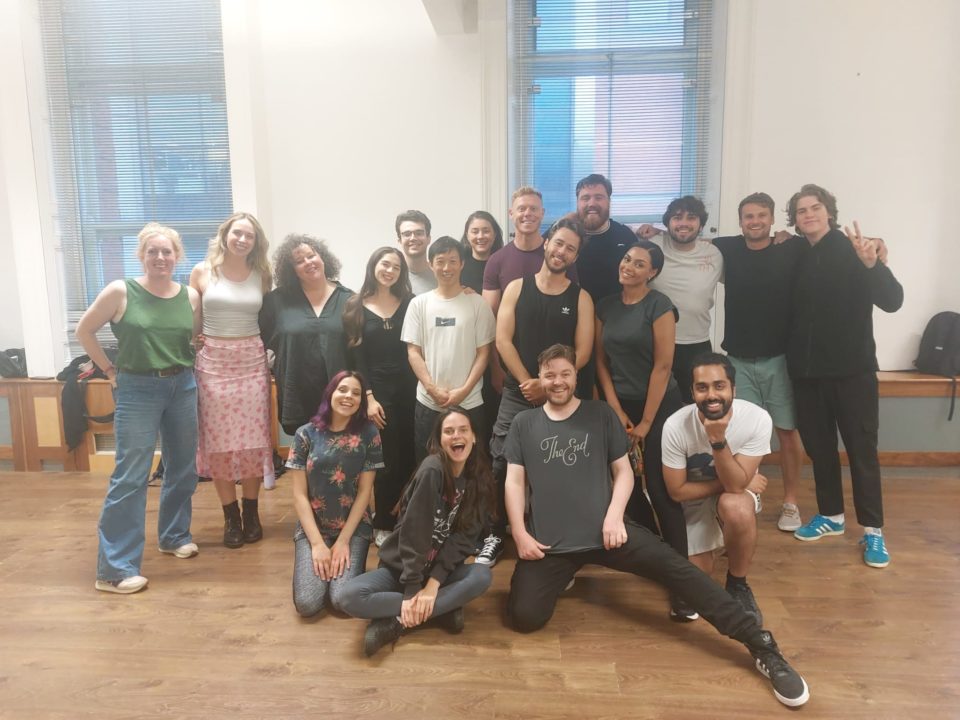
Fedja Zahirovich, a talented Bosnian-Herzegovinian performer, has been involved in acting since his early childhood and pursuing this passion professionally for a decade. He completed his studies in screen acting at the Bow Street Academy – the National Screen Acting School of Ireland, where he had the opportunity to learn from distinguished Hollywood professionals such as Gerry Grennell as well as Oscar and Golden Globe nominated directors and writers. In addition to acting, Fedja’s interests include writing poetry and screenplays and studying psychology, which has fascinated him for years.
He was inspired to pursue acting by his grandmother, Viktorija Stefanović, who was an actress at the local National Theatre. Along with his early exposure to the profession, he developed a love for films as a way to escape the realities of growing up in a post-war society.
His childhood role models were characters from Batman, X-Men, Star Wars, The Lord of the Rings, as well as animated series like Batman, Samurai Jack, The Powerpuff Girls, and Dexter’s Laboratory. He also drew inspiration from actors such as Jack Nicholson, Jim Carrey, Al Pacino, Robert De Niro, and Joaquin Phoenix.
“All of these characters left such a strong impression on me that they greatly shaped my personality. Because of that, I could easily hear my calling and I wholeheartedly knew what I wanted to pursue in my life,” said Zahirovich, who now lives in Dublin.
He explained that moving to Ireland was no easy feat. He had to leave everything behind and start a new life and career in a different language and on the other side of Europe. However, considering the structure, system, and development of the film industry in Ireland, he was offered a job in an American/German/Irish film by Amazon Studios even before he left Bosnia and Herzegovina. This opportunity made it easier for him to adapt to the lifestyle and professional environment.

“The Irish love their country and cinematography, so there’s an atmosphere of enthusiasm, optimism, and support in the air. Here, everyone cheers each other on,” Fedja emphasised, noting that the atmosphere in Bosnia and Herzegovina is not quite the same.
He describes Dublin, a European hub for major tech companies, as culturally diverse, advanced, and highly digitalized. All paperwork is electronic, so there’s no need to wait in lines. While Ireland, like any country, has its share of problems, he highlights that he adapted to life there relatively quickly.
A Leading Role in Sardinia Film
Fedja says that he auditions for roles nearly every day, which has been challenging. As for his current projects, he explained that he has acted in several short films as well as an RTÉ/BBC docu series that are currently in post-production and performed at the Smock Alley Theatre 1662 in a play developed by the Gaiety School of Acting. Right now, he is shooting a feature-length film in Ireland – a social comedy called “Love Lane United” as a supporting lead. On top of that, he’s preparing for an American/Italian action-adventure production being shot on the island of Sardinia, where he plays one of the leading roles.
“I’m excited and inspired by these projects because I have the opportunity to work on something I haven’t encountered before”.
In addition to acting, Fedja describes music as a part of his daily life. He practices guitar and piano every day and is planning to get more involved in this field, as well.
When it comes to advice for aspiring artists, he stressed that the path to becoming an artist is highly personal and different for each individual. There is no one particular path that everyone should follow. He advises young people to attend courses, workshops, and masterclasses led by reputable professionals and institutions.
Fedja explained that some of today’s most prominent actors graduated from the same school he attended, and the courses typically last no longer than a year. “Here, from day one, without much theory and talk, they put a camera in front of your face, and everything is focused on practical work,” he stated.
Furthermore, he encouraged young people to work to develop their own brand and expand their professional networks, which are crucial for generating new opportunities. Fedja also emphasized the importance of remaining authentic by preserving your own truth and nurturing a connection with yourself.

“Who am I? What do I want? This is exactly what makes us special, interesting, and inspired.
Stella Adler used to tell her students that she couldn’t teach them to act, but she could teach them how to be human. One of the first books she gave them to read was The Prophet by Kahlil Gibran, and I would recommend it to everyone,” said the actor from Bosnia and Herzegovina with an Irish address. He also highlights that learning languages, using the internet and social media for growth and education, and continuous self-improvement are equally important.
Bringing in Foreign Productions
Comparing the acting scenes in Bosnia and Herzegovina and Ireland, Fedja noted that the actors in Ireland dwell less on their mistakes and imperfections. They aren’t afraid to try or to make mistakes, and they have ample self-confidence.
“There’s no ridicule and there’s less nepotism,” he added. He acknowledged the unfairness of comparing these two scenes directly because the industry in Ireland is more developed and prosperous overall than that of Bosnia and Herzegovina. In addition, the Irish government recognizes the potential of the film industry and has made great strides, even changing certain tax laws to make it easier to attract foreign productions. This significantly bolstered the country’s economy, with large financial investments from America, Canada, and Europe over the last two years.
If he had the opportunity to change the situation in Bosnia and Herzegovina, he said that he would first work on fostering a healthier mindset and growth mentality. He would encourage young people to express their attitudes and opinions as well as transform the education system to focus more on practical study in the curricula and pay more attention to film acting.
He concluded with a strong message to aspiring actors and younger generations at large: “Albert Camus says that meaning is found in rebellion. So rebel, take risks, be bold, believe in yourself, and go all in for yourself. Everything you imagine is possible if you align your desires and feelings. Have faith, dream, visualise your desires and ambitions, articulate them, write them down on paper, and all the doors of the world will open to you. Take risks and most of all, escape from your comfort zone – it is the death trap of artists.”






